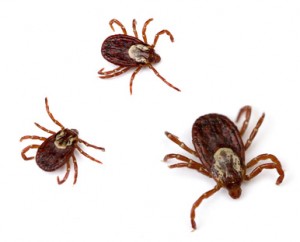

If you live in central Florida or in pretty much any non-arctic location you’ll have to deal with ticks at some point. Ticks are external parasites which make their home in vegetation and wait to latch on to unsuspecting people or animals in the hope of finding a free meal. Ticks are very small and difficult to spot prior to feasting which makes them difficult to detect on your skin or on your animals. Usually once you find a tick it is too late – it has already latched on and you’ll discover it on your dog, yourself or your loved one due to the increase in size resulting from feeding. A vital part of tick prevention is an overall commitment to pest control as ticks can often come onto your property on the back of other pests such as rodents.
Proper pest control measures combined with appropriate landscaping choices and diligent self-inspection after time spent in the woods or high grasses play a critical role in avoiding the transmission of disease from ticks.
In central Florida there are five main types of ticks:
In addition to contacting a reputable pest control service there are several steps you can take to monitor your pets and loved ones for ticks. Ticks lie in wait in areas with ample cover so you should mow your lawn regularly and keep leaves and foliage raked. If you have a wood pile or downed tree try to make sure that the area is dry (ticks feed on rodents so an important part of tick prevention is also rodent prevention and control). Keep play areas for your children away from the edge of your lawn and set up swing-sets and other play equipment in an area with direct sunlight. Clear away as much brush and tall grasses as you can at the edge of your lawn to keep these parasites at bay.
If you have questions about tick prevention strategies it’s always a good idea to contact a reputable pest control service in central Florida. Trained pest control professionals will be able to safely treat your property for ticks and advise you on strategies to keep ticks at bay.
